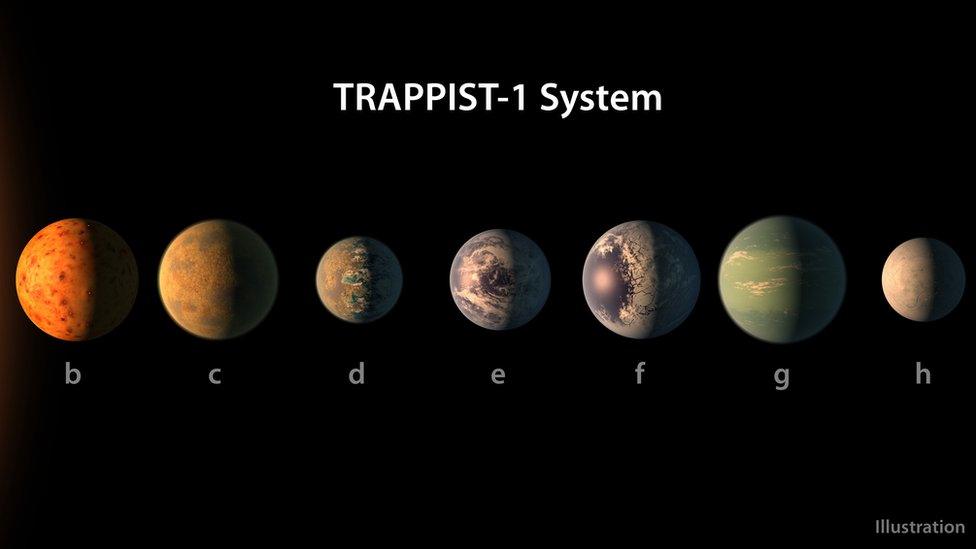Nasa’s Kepler telescope: Top five space discoveries
- Published
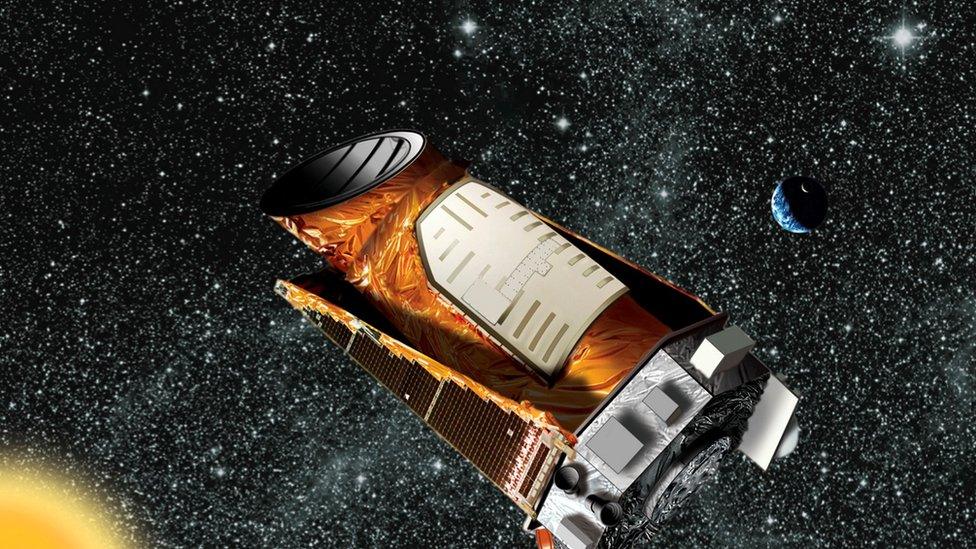
An artist's impression of what the Kepler telescope looks like.
Nasa's Kepler telescope has recently found 216 new planets, meaning it has now discovered more than 4000 potential new worlds!
Of these 216 planets, 10 of them could potentially be home to some sort of life, because they are 'Earth-like'.
This means they have 'rocky' characteristics, and they are located in the 'Goldilocks Zone' of their solar system.
If a planet is in a 'Goldilocks Zone' it is not too hot or too cold, which means water can be in its liquid form there.
The Kepler Telescope has made some amazing discoveries since it was launched in 2009, but here are the top five findings...
Kepler found 'Earth 2.0'
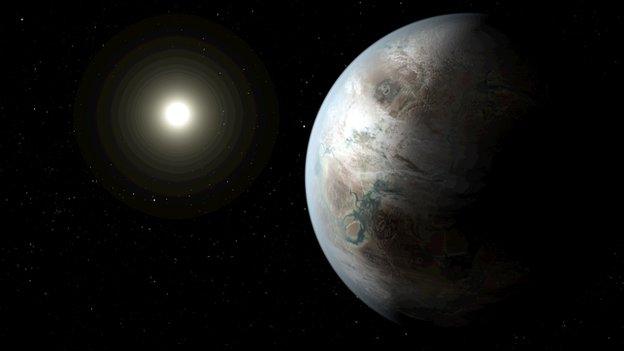
The orbital period of Kepler 452b is very similar to that of Earth
In 2014 the telescope made a huge discovery by finding a planet nicknamed: 'Earth 2.0'.
The planet called, Kepler-452b has been dubbed as 'Earth 2.0', because it shares many characteristics with our Earth, even though it is 1,400 light years away from us.
It found the first 'habitable planet'
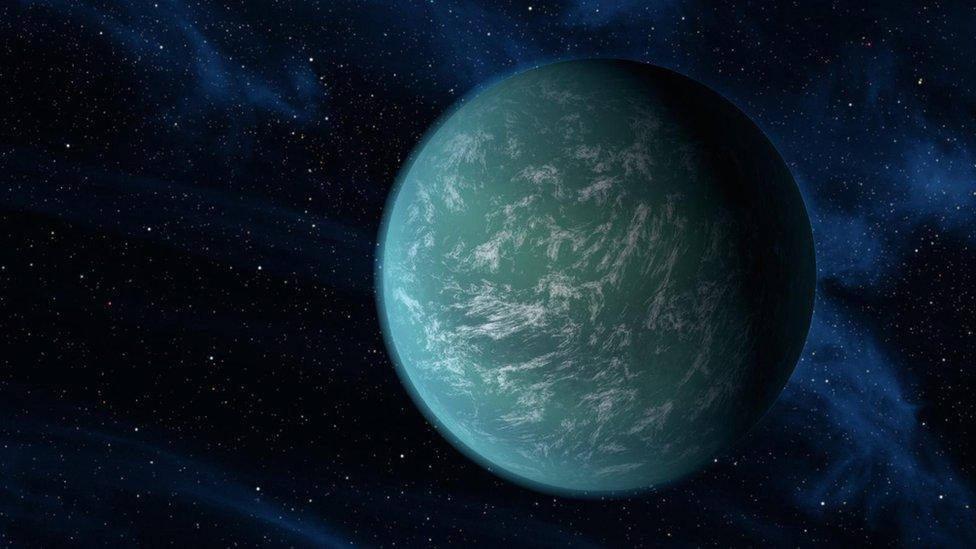
The first potentially habitable planet the telescope found was Kepler-22b, way back in 2011.
Scientists agreed the planet was could be liveable because it was the perfect distance from its sun.
It discovered a 'super Earth'!
Is there life here on LHS 1140b? Martin's been looking into it
In April 2017 the telescope found a super-Earth.
This is a planet called LHS 1140b. It is a good candidate for life and orbits a red dwarf star 40 light years away.
However, scientists think the planet might have had an ocean made entirely out of magma! - which released steam into the atmosphere.
Discovered exoplanets
Find out more from Professor of Astrophysics, Tim O' Brien.
In February 2017, Kepler discovered seven new Earth-sized exoplanets.
Exoplanets are planets that orbit a different star to our Sun - in a different solar system to the one we are in.
Two suns are better than one
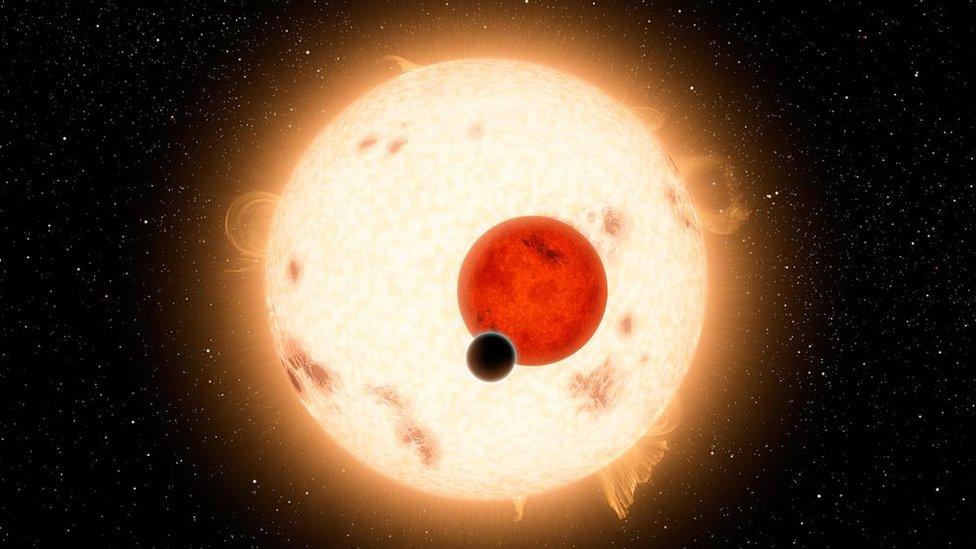
An artists impression of what Kepler-16b might look like
In 2011 Nasa discovered the first planet to orbit two suns!
It is called Kepler-16b, and is roughly 200 light years away from Earth.
Some scientists have compared it to Luke Skywalker's home planet Tatooine, from the Star Wars movies, which also had two suns.
- Published3 October 2014
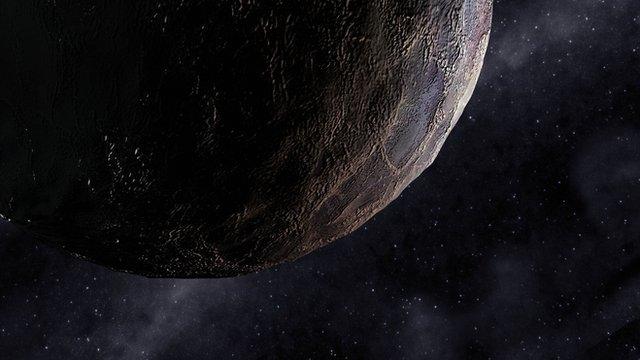
- Published24 July 2015

- Published23 February 2017
